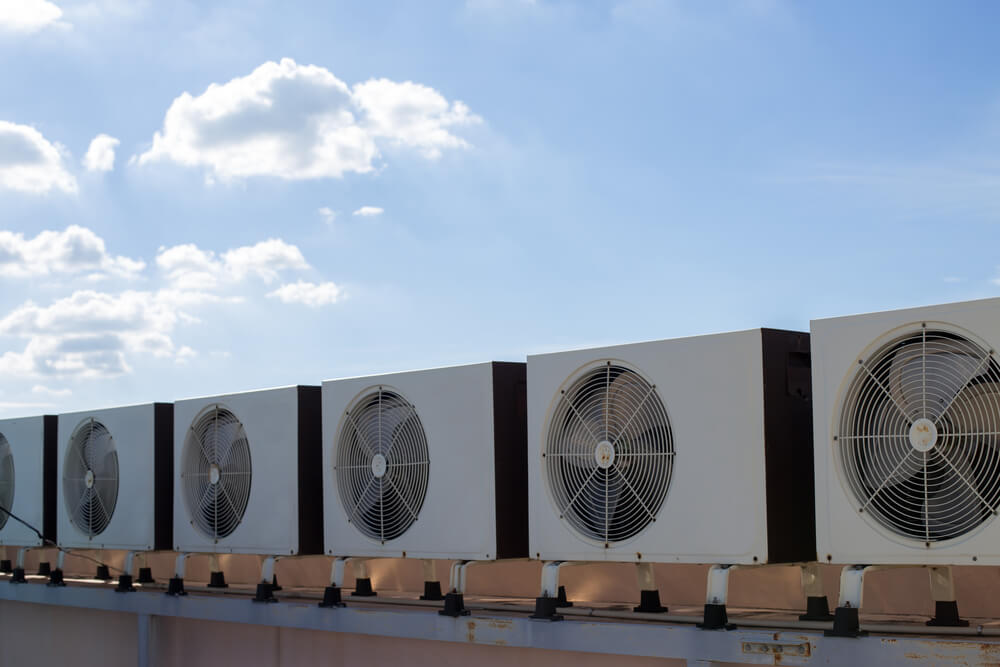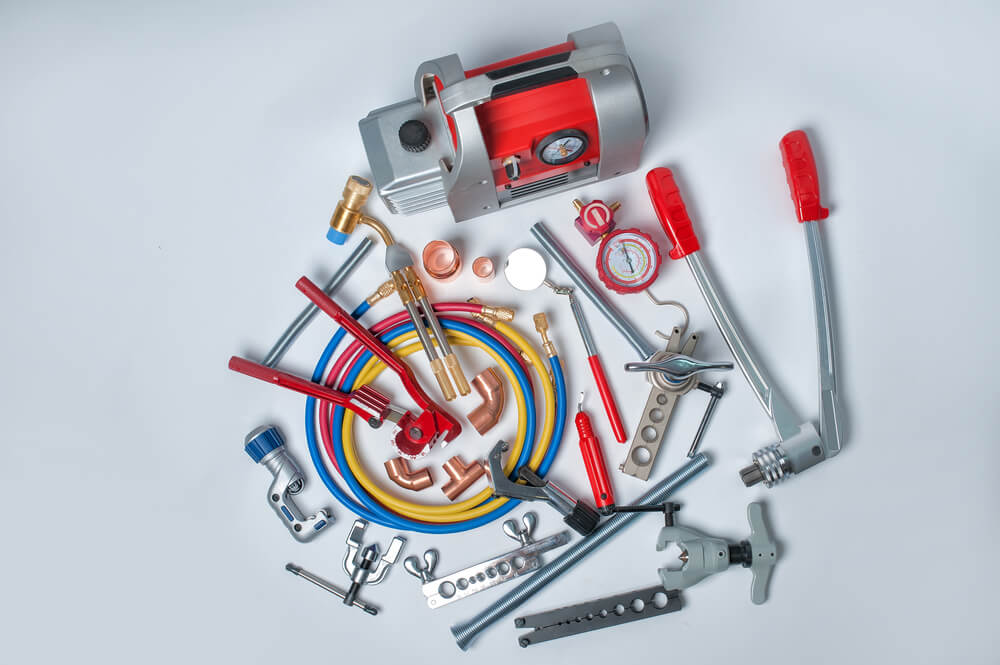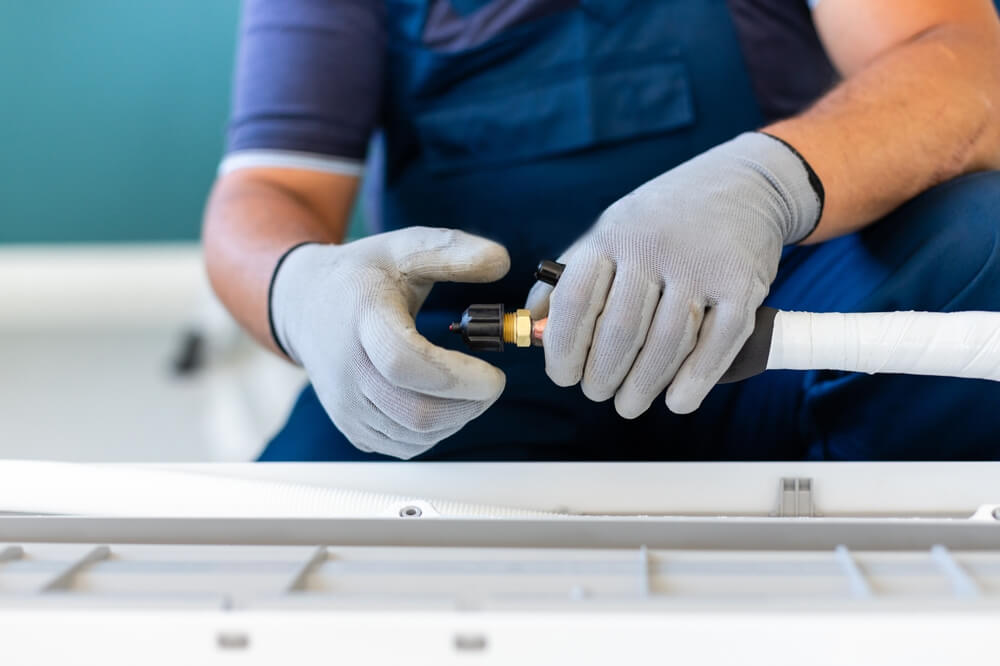With a 33 percent increased market share by buyers in the public sector and the joining of 528,550 employees in the HVAC industry, it’s a good sign to get your hands on starting your own HVAC business.
However, your mind is bombarded with multiple questions, and since your major concern is “how to start your own HVAC setup,” right? We have compiled a comprehensive guide to help you ensure a successful HVAC business setup.
Consequently, let’s dig in to find 10 steps of procedure that will definitely help you design an effective business plan, competitor analysis, market share, and result-driven marketing strategies to place a strong HVAC business foundation.
Steps to Start Result-Oriented HVAC Setup

Gain Enough Experience With HVAC Certification And License
Before starting an HVAC startup, you must be a certified HVAC technician with a valid license.
And for this purpose, you have to get the certifications or a degree in HVAC technology as well as three years of experience working as an associate HVAC tech, whether with a senior HVAC tech or associated with a company.
Moreover, when applying for the license, you must pass an exam comprising both written and practical parts about the basics of an HVAC system, its components, and its functionality.
Following are the categories of HVAC certifications and license you can consider for your business:
- EPA Type I: : Maintenance, disposure and services of vending machines, refrigerators and small appliances
- EPA Type II: Maintenance, disposure and services of units, heat pumps, refrigeration, AC and high-pressure appliances
- EPA Type III: Maintenance, disposure and services of chillers and high-pressure appliances
- Universal EPA Certification: Deals with all the above mentioned appliances
Moreover, the certifications are also available in the categories of HVAC systems like Air Cooling, Heating systems, Ventilations, heat pumping systems, and more.
Learn more about: HVAC License
Design Your Business Primary Servicing Path
As you are a certified HVAC technician and legally have the authority to run your HVAC business, design your business’s primary servicing path.
In this part, you have to do the background work on the following factors:
- What services will you be offering to your customers?
- What are my HVAC expert areas?
- What are the characteristics of your targeted audience?
- What are the familiar HVAC services people nearer to your location needs?
- What will your services cost range, and can your customers afford them?
- Which sector will I be serving; commercial or household, or both?
- Who are my competitors, and what are their business plans?
This step includes the basic brainstorming skills to help you establish a successful HVAC business.
However, ensure that you find answers to every query that pops up in your head and have a solution to everything that seems to be a problem for your startup, whether big or small.
Give Your Business A Name And A Tagline
Once you are done with designing the essential infrastructure for your business, choose an attractive and diverse title for your HVAC business.
For this, use your brainstorming skills again. Try to come up with names inspired by the existing companies and mix the words using synonyms and like-alike words.
You can also use your name as the title and the prefix “HVAC Services” or try your luck on name-generating websites.
However, the following are some of the things you must consider before finalizing your company’s name:
- Make sure there is no domain or other company with a similar title.
- Make it small and catchy so people are attracted to it and search for it.
- Your business name should be easy to remember.
- Don’t go for names that are similar to your competition brands.
- Avoid names that clash with other international or famous brands, whether of the same niche or another.
- Don’t get a name that has double meanings or can be used in other niche companies.
- You can also use words from a foreign language or come up with creative words from literature.
After naming, don’t forget about creating a similar tagline, as it conveys the main idea of your business to your customers.
The process for coming up with a tagline is similar to naming. However, try to come up with something of a storytelling nature.
Figure Out The Financial Track Of Your HVAC Business
Although you might have decided your services’ charges in the second step, this is the step where you have to finalize them while keeping an eye on other financial factors of your business also.
Firstly, categorize your service charges into the following two categories:
- Fixed Costs: These service costs depend upon the type and other aspects of projects, including the charges of your labor, materials expenses, and the time the project will be taking as well as the location of the project.
- Variable Costs: These are the costs that are fixed throughout all of your business financial factors. They could be about the services or prices of the materials. You can set these costs for the most commonly performed repair and maintenance services.
Once you have enlisted the possible financial aspects of your upcoming business and have categorized it, it is time to find funding to make your dream come true.
Here we have a list of possible options for funding your HVAC business. You can consider any of them that suits your needs and plans.
- Small Business Loans: They are funding programs for small business owners or those planning to start a company and need financial help to progress. There are multiple small business loans depending on the company’s size and other factors.
- Credit Card Loans: Credit Card loans are provided by the bank based on your credit card limit, and then you pay back the money with interest in monthly installments or repayment settings. The money in this loan is deposited directly in your bank accounts.
- Government-Based Loan Programs: Many government-funded loan schemes are available for small-scale or new businesses that provide significant funds. With your HVAC certificate and license, you can easily avail yourself of this option.
- Find Private Investors: Many investors provide funds to small or new businesses, and the owners repay them from their earned profit. However, private investment can be a little challenging compared to other funding options.
Putting Down the Basic Bricks for Your HVAC Business

Now, as you are done with naming and finding funding to support your upcoming HVAC company, it is time to arrange the necessities for your business.
It includes arranging an office for your business and the necessary tools and equipment. Let’s deal with these two necessities one by one.
Arranging Basic Tools and Accessories:
While starting your HVAC company, you have to arrange the basic tool sets and mandatory HVAC equipment for your labor team. It may include:
- Hammer
- Nutdriver set
- Screwdrivers set
- Pliers
- Flashlight/headlight
- Cutters
- Measuring tape
- A complete range of wrenches
- Cordless battery-operated drill machine
- Gauges
- Extension cord
- staple guns
- Core removal tool
- Metal fin straightener
- Thermometers
- Multimeters
- Saw
- Caulking gun
- Pumps
- Nitrogen tanks with regulators
- Psychrometer
- AMO-meter
- Leak detector
- Hand seamers and snips
- Crimpers
- Flushing solvent
- Thermal imaging tools
Learn more about: Must have HVAC tools
Not only this, but you have to provide essential safety accessories to your labor to avoid any possible complications. Precaution equipment includes:
- Thick, durable gloves to protect your hands from gaseous or any harmful liquid content.
- Masks to save your face from condensed, heated, or intense cooling air, flushing solvents, or any other harmful chemical during HVAC repair.
- Goggles to save your eyes from the HVAC system’s debris, dust, dirt, allergens, and contamination.
- Ear muffs protect your ears from the throbbing loud sound machines make during repairing and maintaining the systems.
- Hard, water and electricity-resistant shoes to protect your feet from any possible fluid spill or getting hurt.
After purchasing the HVAC tools, you must agree that more than half of your funding goes to them.
You might not be agreeing now, but soon you will! So the first ever task you have to do after buying your HVAC tools and accessories is to buy an insurance policy for them.
This might sound unfamiliar to you, but insurance is critical and what most of the leading HVAC companies do. Your tools are your most significant assets, and you can compromise on their protection.
Arranging an Office for Your HVAC Business:
A physical location for your HVAC business validates your business’ authority and motivates your customers to visit your office and take services from you.
HVAC is certainly not a small investment as customers only tend to take services from companies whose physical location is easily approachable to them. They don’t rely on online services for such significant investments.
However, this is just an optional step. Don’t go for it if your funding is insufficient to afford an office. Start with online servicing and make one with a profit. But keep a physical office as your foremost priority.
Register Your HVAC Company Officially

In this step, you’ll need the services of a financial advisor as the riddle of Corps and LLC can be very tricky for you.
Registering your business is a very critical yet inexpensive process as long as you have an excellent legal and financial advisor by your side.
However, your HVAC certificates and license will support you if you register the business independently.
Perform Market Analysis and Design an Effective Business Plan
Once you have completed essential financial, registering, and accessories steps, a productive and compelling business plan should be your next goal.
A business plan is a factor behind a company’s success. It contains your company’s goals and objectives, possible strategies to achieve them, and risks and complications that can occur along with their solutions.
Here is a rough overview of what your HVAC business plan should include:
- A Cover Page highlights your company’s name, tagline, and other essential information.
- A business overview for generally explaining the objective of your company and how it links to your targeted audience.
- You offer HVAC services to your customers along with its advantages and pricing factors.
- Market Overview to give a brief review of the industry and your competitors and why your customers should choose your services.
- Implementation plans highlight the strategies and steps your company has taken or plans to achieve its objectives in the future,
- Management summary so your customers will know the masterminds behind your HVAC company.
- Financial Plans, the most critical factors of a whole business plan, provide your customers with information about your HVAC financial planning and how you manage your funding and profits.
So, these were the basic business plan components that must consider while making one for your business. However, designing them is pretty simple but time-taking.
Yes, you read that right! You have to put your months into market analysis and deeply identify the business plans of leading HVAC corporations and companies to come up with one and succeed as the others do.
And for market analysis, the following are a few tips and tricks that can help you a lot!
- Consider your competitors as your most significant assets.
- Understands the past and recent trends of the industry.
- Study the financial aspects of the leading HVAC companies.
- Acknowledges the needs and expectations of your targeted audience.
And once you are done with market analysis, thoroughly compare your business plans and make changes accordingly.
Create A Company-Based Business Account
Mostly, small business owners use their personal accounts at the start of their business for company transactions, salaries, and other financial tasks. However, this is one of the biggest mismanagement in a startup business.
As you have a properly registered HVAC company, open a company-based bank account and separate your personal money from the company’s finances.
It will help you manage your transactions, pay your labor quickly, understand the profits, and divide the funds according to your needs.
In short, you can understand your company’s financial state better with a separate company-based bank account.
To open a company-based bank account, you will require the below-listed documents:
- Your HVAC business license
- Ownership documents
- Your company’s establishing documents
- Employer Identification Number
Other required paperwork may vary from bank to bank.
Implement Effective Marketing Strategies

Congratulations! You have built up the basic infrastructure of your company, and now you are ready to start making efforts to have your first client.
Now, the question is how to have your first clients and what possible strategies to implement to keep your business running.
Getting clients solely depends on your business’s reputation and popularity. The more people know about your company, the more customers trust your services.
And for this purpose, the following are the top 10 marketing strategies you must have for your newly-established HVAC business:
Build Your Company’s Website:
In this era of rapid digitalization, no company can exist without having a digital presence.
Therefore, build a catchy and comprehensive website for your company with the help of freelance developers or a software company.
Moreover, remember the SEO services that will help you rank your websites to the top results whenever someone searches for HVAC services.
Take Advantage Of Social Media:
Create a social media presence for your business on Facebook, Twitter, Instagram, Pinterest, and other social media platforms.
People trust brands with good reviews on social media, so make sure every client posts their reviews and ratings on your social media profiles.
Professional Email Address And Marketing:
A professional email address is a great aspect of validating your company’s presence. Give every employee an email address of your company name, like “employee@yourcompanyname.com.”
Also, start email marketing so you can get into the inbox of your targeted audience, HVAC system owners, especially in commercial sectors.
Moreover, email marketing is affordable and an easier option for marketing than other options.
Don’t Take the Technology for Granted
Keep a record of everything about your business from the start. Whether it is the funding of investors, your employee’s salaries, your customers’ queries, the service orders you got, how many jobs you did today, how much profit you earned, or the installments you have to pay back.
You cannot simply afford to take any risk in your newly-established HVAC business. Therefore, getting one comprehensive or multiple software for your business is the most suitable option.
Not only will your finances’ calculations be automatic and accurate, but you can also have all the details of orders, services, and other information in one place, safe and secure.
In addition, digitally accessing information is quite simple and quick compared to opening registers and finding specific pages for orders.
Following are some aspects of your newly-launched HVAC business that needs to be digitalized:
- Record your funds and finances spending
- Monthly installments you have to pay
- Payments for the social media platforms handling and digital marketing
- Attendance and other details of your employees
- Orders you received and delivered orders
Final Thoughts
Starting a new business has never been a piece of cake for anyone. From hiring a trusted and expert staff to finding funds to support your business, from choosing a niche-related title to getting your first order, it requires a lot of time, energy, struggles, and consistency.
However, following the above-discussed guide, you can establish a successful, profitable, long-running HVAC business that leads the industry.
So, stop wasting your time on fruitless schemes and confusing strategies and start researching the HVAC industry to prepare an exceptional and up-to-the-mark business plan to benefit you in the long run!




